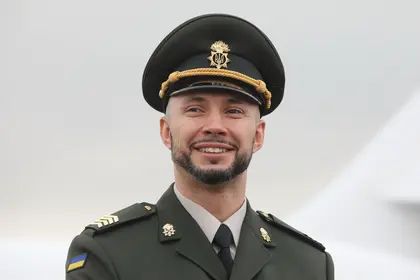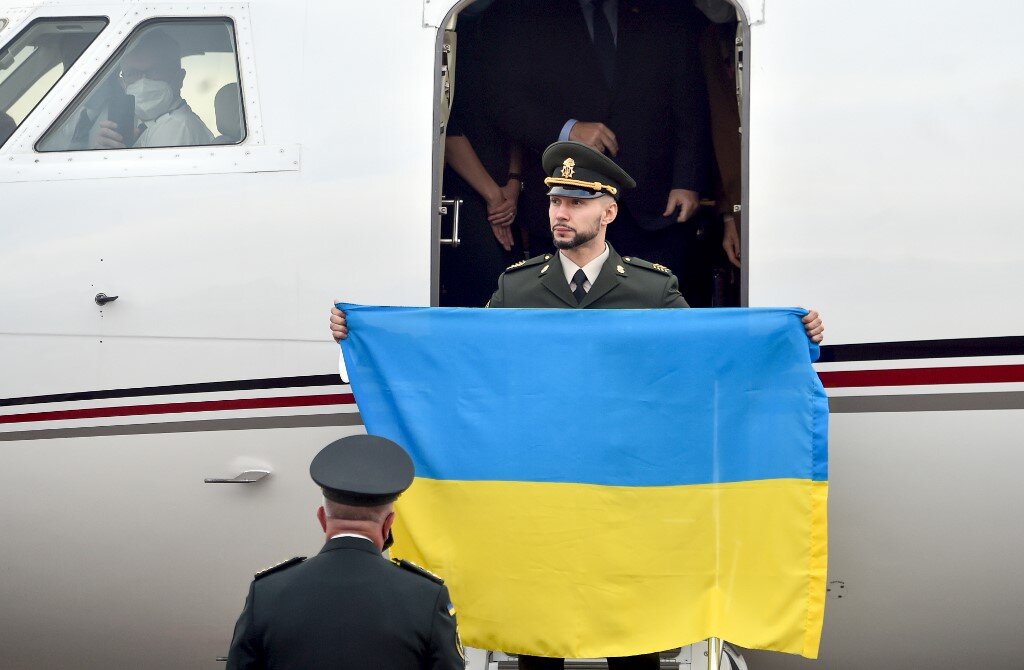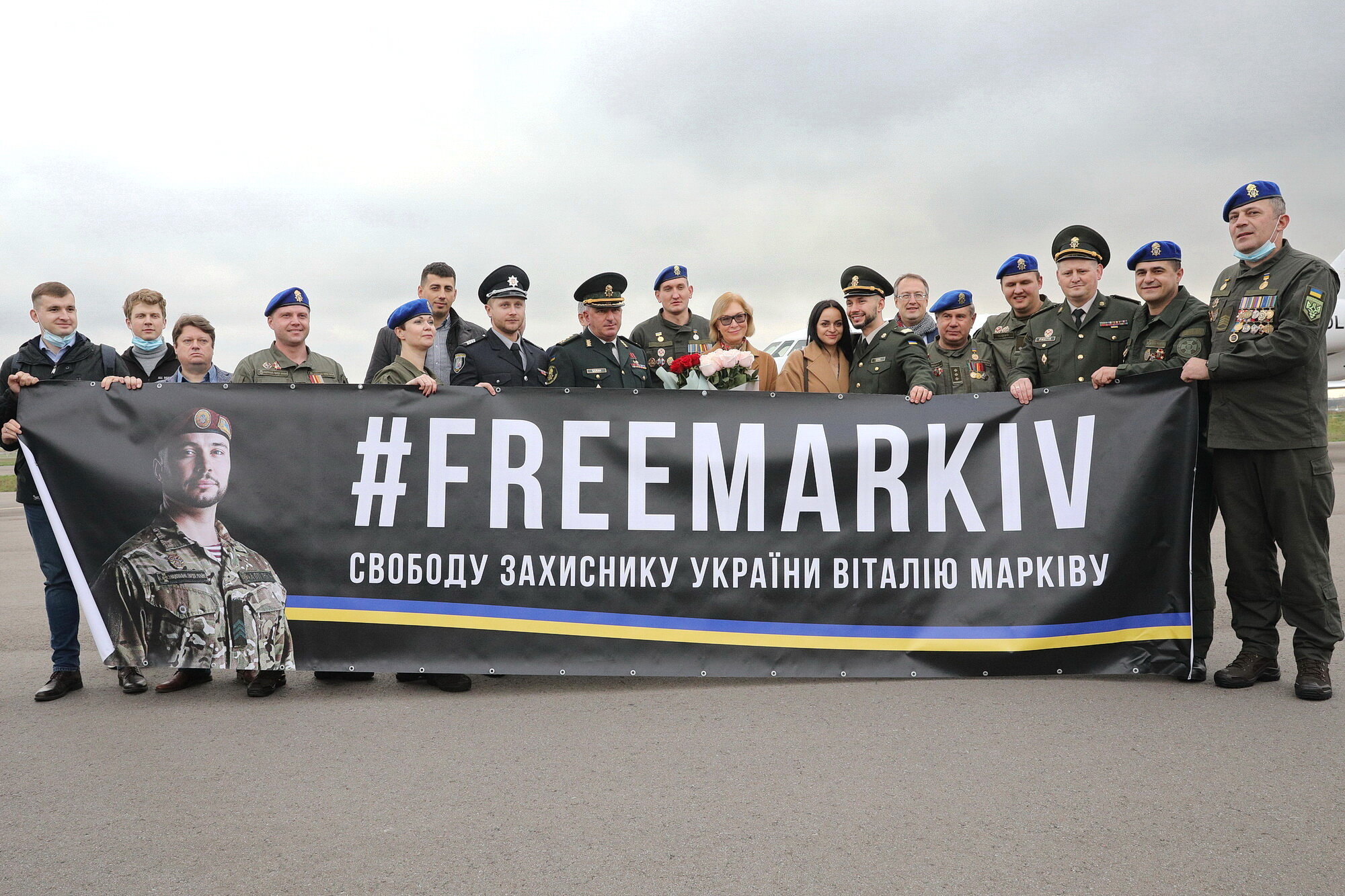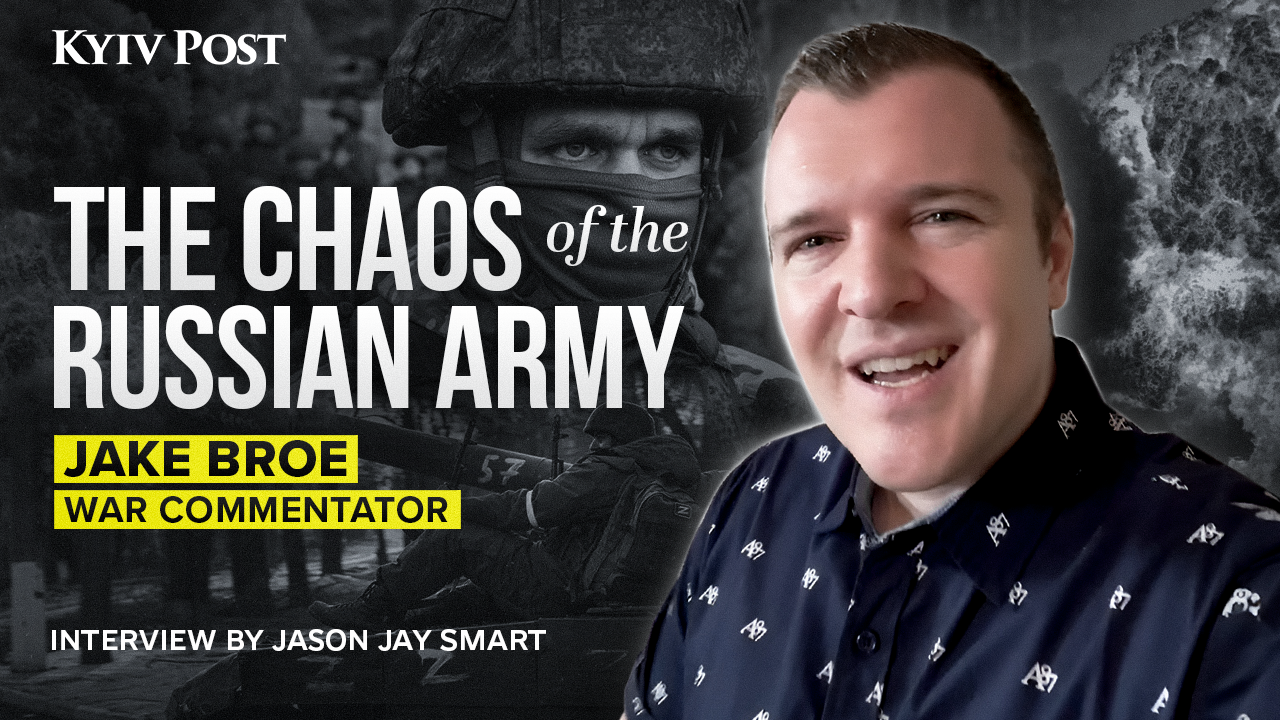Ukrainian soldier Vitaliy Markiv was supposed to spend 24 years in prison in Italy on highly contested charges. He had been found guilty of involvement in the killing of Italian photojournalist Andrea Rochelli and his translator Andrei Mironov in the war-torn Donbas.
Markiv’s supporters said the case was biased and the evidence against the Ukrainian soldier was exceedingly weak. Yet it had managed to convince a jury last year.
JOIN US ON TELEGRAM
Follow our coverage of the war on the @Kyivpost_official.
Then, on Nov. 3, a court overturned Markiv’s sentence, sparking jubilation in Ukraine.
That legal victory was not only a testament to the work of Markiv’s lawyers, but also a result of the joint efforts of journalists and politicians in fighting Italian misinformation and bias.
Among the two most important people in this campaign were Olga Tokariuk and Nataliya Kudryk, Ukrainian journalists who have been covering the case since Markiv was arrested on June 30, 2017.
“In Italy, the coverage of this case was very one-sided. The media atmosphere surrounding Markiv’s case was not objective,” Tokariuk told the Kyiv Post.
She believes that biased media coverage affected the court’s decision in Italy, as Markiv’s fate was decided through a jury trial.
Italian reaction
In June 2017, Markiv was arrested after flying into the airport in Bologna to visit his mother. He was charged with being an accessory to the murder of Mironov and Rochelli and spent over three years in prison as his case wended its way through the Italian court system.
In 2014, Rochelli and Mironov were killed by mortar shelling in Sloviansk, a city in the war-torn Donbas that was occupied by Russian-backed militants at the time. The journalist and his interpreter were in the city with a French reporter William Rogelon, who was wounded but survived the shelling.
Markiv, a member of Ukraine’s National Guard, was stationed on the Karachun Mountain in the area, guarding a television tower. The prosecution claimed that Markiv provided the Ukrainian army with information about the journalists’ whereabouts, despite knowing that they were not combatants.
Markiv’s lawyers asserted that he could not see Mironov and Rochelli, as they were two kilometers away from him and visibility was low. The defense also claimed that the journalists were likely victims of the Russia-backed militants, as Rogelon repeatedly said he had seen plenty of them when he was fleeing the scene.
When Italian law enforcement arrested Markiv, who also holds Italian citizenship through his mother’s marriage, the local press immediately treated him as guilty, publishing articles with headlines like “Killer of Reporter Rocchelli Arrested” and “Killer Who WasReturning to His Mother.”
“What ‘impressed’ me is that neither the court nor the media ever considered the possibility that it was the separatists who killed Mironov and Rochelli,” Tokariuk told the Kyiv Post.
She believes that Russian propaganda, which has always spread anti-Ukrainian messages, also played a role.
“I am not sure why such disinformation happened in Italy,” Tokariuk said. “But we do know that there is sympathy towards Russia in Italy, there are a lot of strong pro-Russian political forces, there is also a consulate of the so-called (Luhansk and Donetsk ‘people’s republics’),” Tokariuk said, referring to the militant organizations occupying parts of eastern Ukraine.
The Italian press also referred to Ukrainians more broadly as members of the radical right, calling them skinheads trying to exculpate a violent murderer.
One popular media outlet, La Repubblica, released an article and a podcast about Markiv by Mario Calabresi in its supplement “Il Venerdì.” Calabresi, who was once the editor of La Repubblica, called the Ukrainian soldier someone who was “radicalized online” after “following the uprising of Kyiv youth against Moscow online.”
Another top Italian media outlet, L’Espresso, published an article by Fabrizio Gatti, who described the Ukrainian community as radical rightists who supposedly seized control of the government in Kyiv and regularly filled the Italian courts with protesters during Markiv’s trial. In another podcast, Gatti said that one of the witnesses in court was a member of a nationalist and socialist party of Ukraine, comparing it to the Nazi party of Adolf Hitler.
Kudryk believes that the influential media outlets that participated in this anti-Ukraine propaganda are all connected to The National Federation of the Italian Press. This organization was a civil plaintiff in Markiv’s case.
Italian journalists also framed their work as a defense of press freedom and the public’s right to information. Although there is no evidence of this, they believed Rochelli and Mironov were killed to prevent them from reporting on the war in the Donbas.
But Kudryk believes that, invoking press freedom, Italian journalists actually “sacrificed professional principles of providing reliable, verified, unbiased information.”
She also believes that the Italian media wanted to see someone punished for Rochelli’s killing, and Markiv simply fit the situation. He had Italian citizenship, spoke Italian, was part of the Ukrainian military in the conflict zone and happened to arrive in Italy for a visit.
In response, the Embassy of Ukraine in Italy addressed a letter to the chief editor of La Repubblica stressing the importance of objectivity. The editorial office offered the diplomats to publish a short remark on their website.
Ukraine’s Verkhovna Rada also approved an address to the President of Italy and the Italian parliament, asking them to “ensure the transparency, objectivity, and impartiality of the appeal proceedings.” Officials in Rome have been keeping their distance from the case, claiming impartiality and the independence of the judicial system.
Morani’s article
But many in Ukraine felt the case was anything but impartial.
A key piece of evidence in the investigation was an article published by journalist Ilaria Morani on the website of Corriere della Sera, an Italian media agency. According to the Ukraine Crisis Media Centre, Markiv’s pre-trial detention order was based upon the testimony of Morani and Marcello Fauci, another Italian journalist who worked on the article.
“We reached by phone the captain of the (Ukrainian) army who, at that moment, was at the tower to coordinate the defense of the city,” the article reads. It later also quotes a phone call between Fauci and Markiv.
But Markiv was not a captain. He was a sergeant who was actually on Karachun Mountain guarding a television tower.
Morani, who was a key witness in the investigation, heard a conversation between Fauci and Markiv on May 24. She didn’t record it, and an exact transcript of the conversation isn’t included in case files. Nevertheless, she published an interpretation of the call the next day.
“It seemed to me that he was a captain…,” Morani said at one of the court hearings, adding that the quotes from the article were not verbatim.
In the article, she quotes Markiv allegedly saying: “We don’t normally shoot in the direction of the city or upon civilians, but as soon as we see movement we load heavy artillery. This is what happened to the car of the two journalists and interpreters”.
Despite the lack of concrete evidence, the prosecutors later referred to Morani’s article as Markiv’s confession.
“Journalists have a lot to learn from this case,” Tokariuk says.
Crossfire
The narrative surround Markiv’s case might not have changed were it not for the release of the short version of “Crossfire,” a documentary film produced by Cristiano Tinazzi in collaboration with journalists Danilo Elia and Ruben Lagattolla, as well as Olga Tokariuk. The group has been investigating the tragic events in Sloviansk since 2019.
The full version of the film is expected to be released at the start of 2021.
Tokariuk emphasized that everyone involved in this tragedy, including Markiv, was merely caught in unfortunate circumstances. According to her and Tinazzi, the team’s intention was not to prove Markiv’s innocence but to establish the truth out of respect for both their journalist colleagues and Markiv.

Ukrainian journalist Olga Tokariuk with Vitaliy Markiv, a Ukrainian soldier who spent three years imprisoned on murder charges in Italy, before finally winning an appeal and returning to Ukraine in November.
“After the movie was released, the media climate in Italy started to slowly change. It is obvious that this had a certain effect on public opinion, and possibly on the jury and on the Court of Appeal’s decision,” Tokariuk told the Kyiv Post.
Notably, Italian law enforcement has not conducted an investigation directly in Sloviansk, even though they were repeatedly invited to do so by Ukrainian officials. As a result, the film offers a unique in-depth analysis of the tragedy that the court in Italy failed to provide.
Ukrainian investigation
Ukraine’s Ministry of Internal Affairs and the National Police, on the other hand, did conduct their own investigation.
On May 25, the interior ministry announced that a group of experts from the Kyiv Research Institute of Forensic Science and the Kyiv Polytechnic Institute had arrived in Sloviansk to conduct an investigative experiment.
The National Police also conducted 11 expert assessments and 7 investigative experiments, and also questioned 70 witnesses.
The results of the investigation disproved the verdict of the court in Pavia, Interior Minister Arsen Avakov said during a briefing on Aug. 31, 2020.
Rochelli died from mortar fire, but the investigation showed that neither Markiv, nor the soldiers in his unit had mortar shells at the time. Also, it concluded that Markiv was positioned 1.76 kilometers away from the location of Rochelli and Mironov. Ukrainian investigators claimed that the soldiers would not have been able to see the journalists because of distance and because the area in between them was covered in dense forest.
Avakov, who has been accused of large-scale corruption and abuse of power, is often highlighted as a leading force that returned Markiv home. For instance, Kudryk believes that the public became more interested in the case in May 2019, when Avakov attended one of the court hearings in Italy, bringing Ukrainian journalists with him.
He has also spoken with Davide La Cecilia, Italy’s ambassador to Ukraine, emphasizing that Ukraine’s position on Markiv is unwavering and Italy’s inability to provide a fair trial will hurt the relationship between the countries.
Ukraine continues to stand by Markiv even after his return. Ukrainian Ombudswoman Ludmyla Denisova emphasized that the prosecution will likely appeal the case in the Cassation Court of Milan. Once again, Ukraine will do whatever it can to prove Markiv’s innocence, Denisova added.
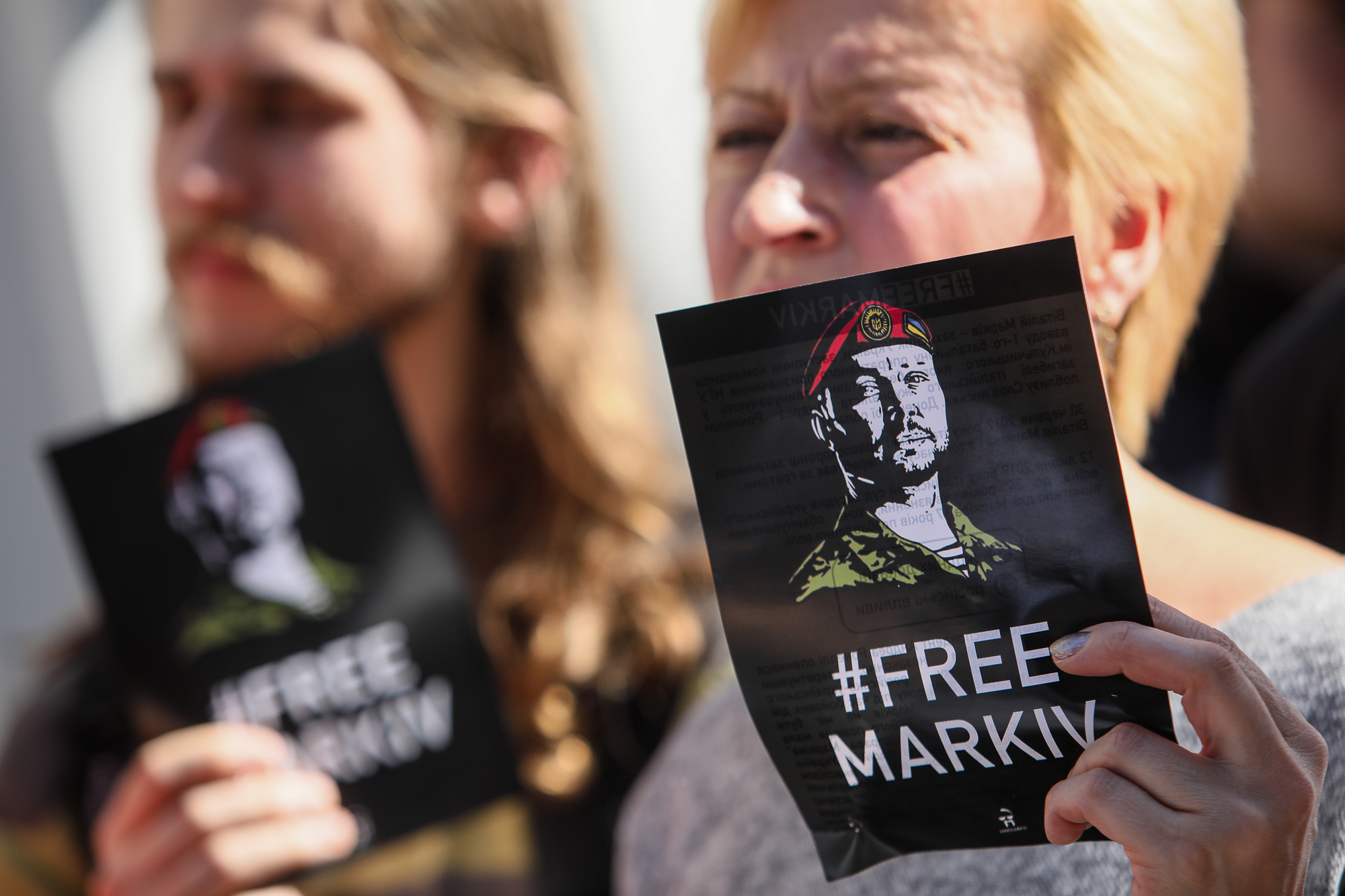
You can also highlight the text and press Ctrl + Enter


